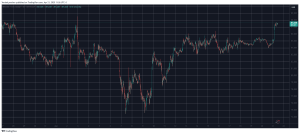The Tel Aviv Stock Exchange (TASE) is willing to enable clients of its non-banking members to trade cryptocurrencies.
Its proposal comes as a result of the turmoil experienced in the sector last year, which according to numerous watchdogs, was a prerequisite for imposing stricter regulations.
Authorizing NBMs
The TASE – Israel’s only public stock exchange – wants to expand the authorized activities of its non-banking members (NBMs) to allow customers to trade digital currencies. Examples of such entities are brokerage firms, insurance organizations, exchanges, venture capitalists, and others.
The stock exchange reminded about the crash of the cryptocurrency market in 2022, emphasizing the necessity of enforcing a pertinent regulatory framework on the industry.
The TASE’s proposal is focused on customer protection. It enables traders to deposit fiat money in cryptocurrencies, while withdrawals can be conducted after non-banking members contact a licensed provider of digital asset trading services and an authorized custodian. In other words, the possible rule will require NBMs to buy and sell cryptocurrencies on clients’ demand.
Israel’s stock exchange thinks domestic regulations should align with global ones to attract more foreign capital into the local financial ecosystem. Greenlighting NBMs to enable customers to trade cryptocurrencies could diminish the risks in the sector, encourage competition, and bolster innovation, it added.
The marketplace displayed intentions in October last year to set up a designated blockchain-based cryptocurrency platform that would focus on smart contract technologies and issue a variety of tokens.
CEO Itai Ben-Zeev said the exchange should see the light of day in the next four years and will aim to accelerate the development and adoption of fintech.
Israel to Squeeze Crypto Into Existing Legislation
The Israel Securities Authority (ISA) revealed earlier this year that it could change three of its existing financial laws to include cryptocurrencies. The amendments will allow the watchdog to directly supervise digital asset operations and place them into the “financial instruments” category, where securities and joint investments are.
The main goal is to grant Israeli crypto participants maximum security and highlight the industry’s technological improvement. Similar to the TASE’s proposal, the ISA believes that embracing digital assets could bring numerous benefits to the local economy, including a flow of foreign investments:
“The advanced technology in these assets can lead to economic efficiency in many areas, reduce costs, save the need for intermediaries, and optimize the way information is transferred between entities.”
The post Tel Aviv Stock Exchange to Regulate Crypto Trading After Turbulent 2022 appeared first on CryptoPotato.




















